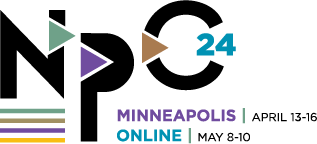Saturday, April 21, 2018 from 1 p.m. - 2:15 p.m. CDT
Location: R06
Now Available with Passport
This course is now included with your Passport Subscription.
Open with Passport Go to Passport
WHAT YOU’LL LEARN
- Highlights of a formal needs assessment of water decision-support tools for the planning community, including current gaps and opportunities
- Tools and methods from NOAA, Lincoln Institute, and the Nature Conservancy that you can employ to plan for water-related issues such as flooding, drought, and water quality
- How planners integrate information from decision-support tools into the land-use planning process
MORE SESSION DETAILS
Communities address water-related issues daily. For some, the issue is flooding and stormwater management; for others, the issue is drought and the lack of sufficient quality water to meet community needs. Land-use planning can play a key role in water management. However, effective planning for current and future water events demands timely, accurate, place-based information. Geospatial models and tools are becoming an indispensable part of a planner’s toolkit because of their ability to visualize and analyze the potential impacts of water on populations, natural resources, and infrastructure. This session will provide an in-depth look into decision-support tools that enhance the ability to address water-related issues through community planning. The National Oceanic and Atmospheric Administrations’s Digital Coast is a partnership and user-driven enabling platform that includes web-based tools for visualizing the impacts of inundation on coastal communities. The Lincoln Institute of Land Policy supports scenario-based tools to address water availability in arid climates. The Nature Conservancy provides web-based mapping tools to address inundation through its coastal resilience program, and water quality within an emerging freshwater network. This session will include overviews and demonstrations of tools from these organizations and highlight a recently completed water decision-support tools needs assessment conducted by APA.
Session Speakers

Amy A. Cotter
Speaker
Cambridge, MA

Anna Read, AICP
Organizer and Speaker
The Pew Charitable Trusts
Washington, DC

David P. Harlan
Speaker
Baton Rouge, LA

Nicholas Schmidt
Speaker
NOAA Office for Coastal Management
Charleston, SC
Activity ID: NPC188247

